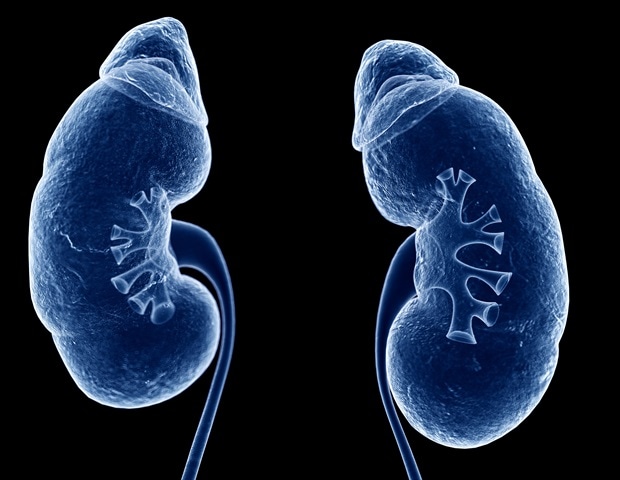An implantable sensor offered superior warning of kidney transplant failure in rats as a lot as a number of weeks sooner than generally used biomarkers of kidney operate, researchers report.
The machine, examined in a rat mannequin of kidney transplantation, gives real-time steady monitoring of organ temperature and thermal conductivity, detecting inflammatory processes related to graft rejection. Though lifesaving for sufferers with end-stage kidney illness, long-term kidney transplantation survival stays a serious problem. Graft failure can happen anytime, and the early levels of kidney transplant rejection might be tough to detect. Though organ biopsy is the “gold customary” for diagnosing transplant rejection, it happens sometimes and may introduce further dangers and problems. As a substitute, blood and urine biomarkers are sometimes used to detect rejection. Nonetheless, components unrelated to kidney operate can alter these biomarkers, resulting in false destructive and constructive outcomes.
To deal with the necessity for a dependable, noninvasive approach to observe and detect the onset or early levels of rejection, Surabhi Madhvapathy and colleagues developed an implantable bioelectronic machine to observe the thermal traits of the organ. The ultrathin, stretchable thermal sensor interfaces instantly with the comfortable floor of the kidney and connects to a miniaturized wi-fi communication module for long-term, real-time, and steady measurements of the native temperature and thermal conductivity of the organ, which have been used as surrogate markers for kidney irritation and perfusion, respectively.
In mannequin rat research, these indicators recognized the onset of rejection ~3 days earlier than clinically related blood biomarkers would, when the animals weren’t given immunosuppressive remedy, and ~2 to three weeks earlier than clinically related blood biomarkers would in immunosuppressed animals. “Though a number of hurdles stay to be overcome, the prospect of integrating steady monitoring into scientific follow may signify a serious step towards personalised organ transplant care,” write Mohamad Zaidan and Fadi Lakkis in a associated Perspective.
Supply:
American Affiliation for the Development of Science (AAAS)
Journal reference:
Madhvapathy, S. R., et al. (2023) Implantable bioelectronic techniques for early detection of kidney transplant rejection. Science. doi.org/10.1126/science.adh7726.

